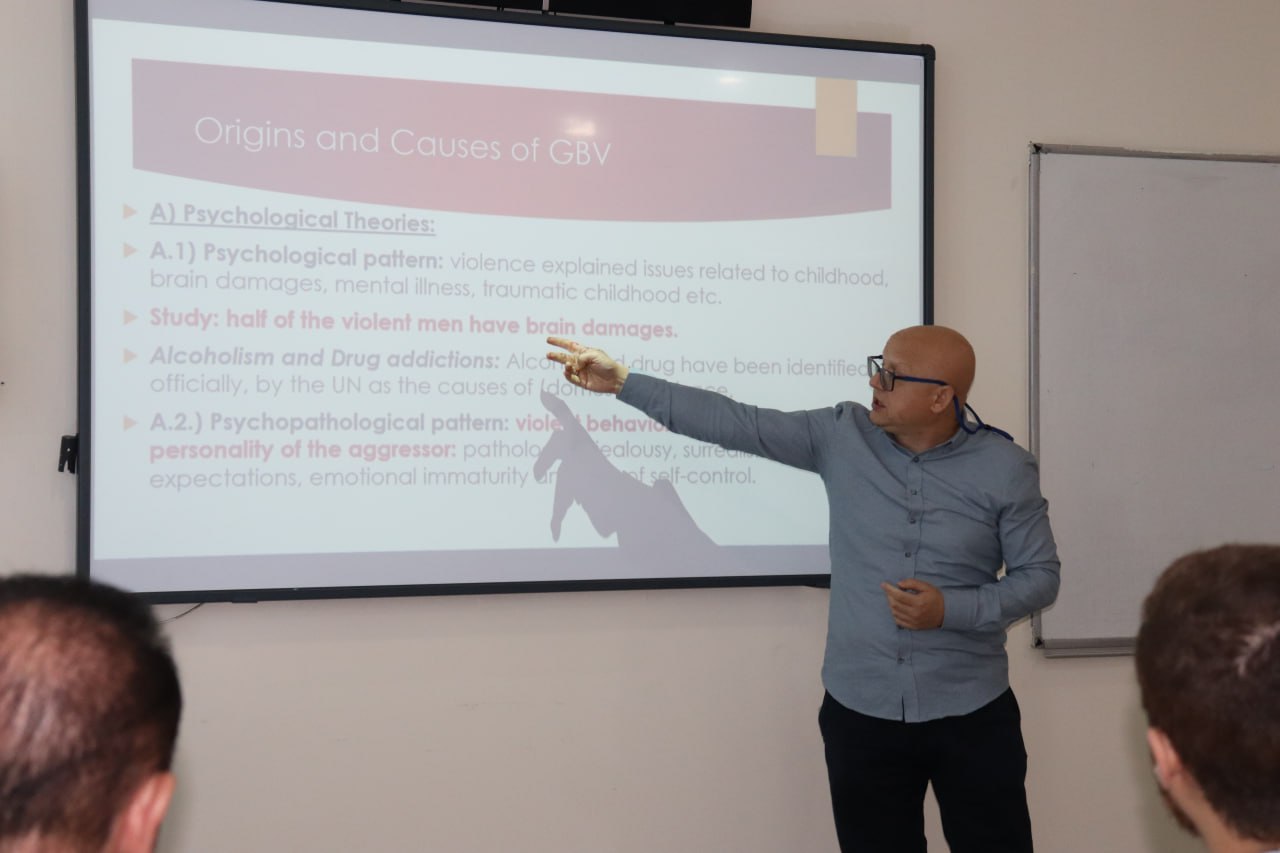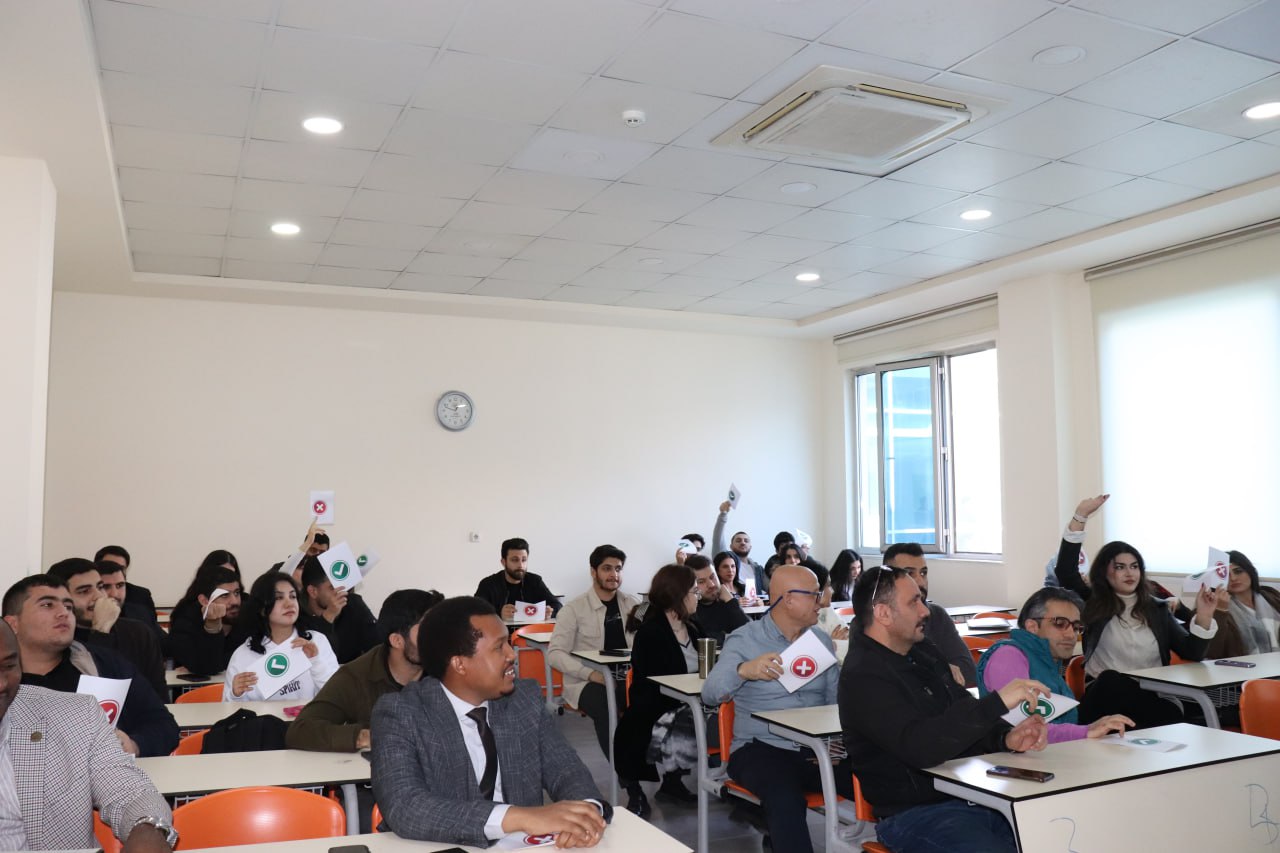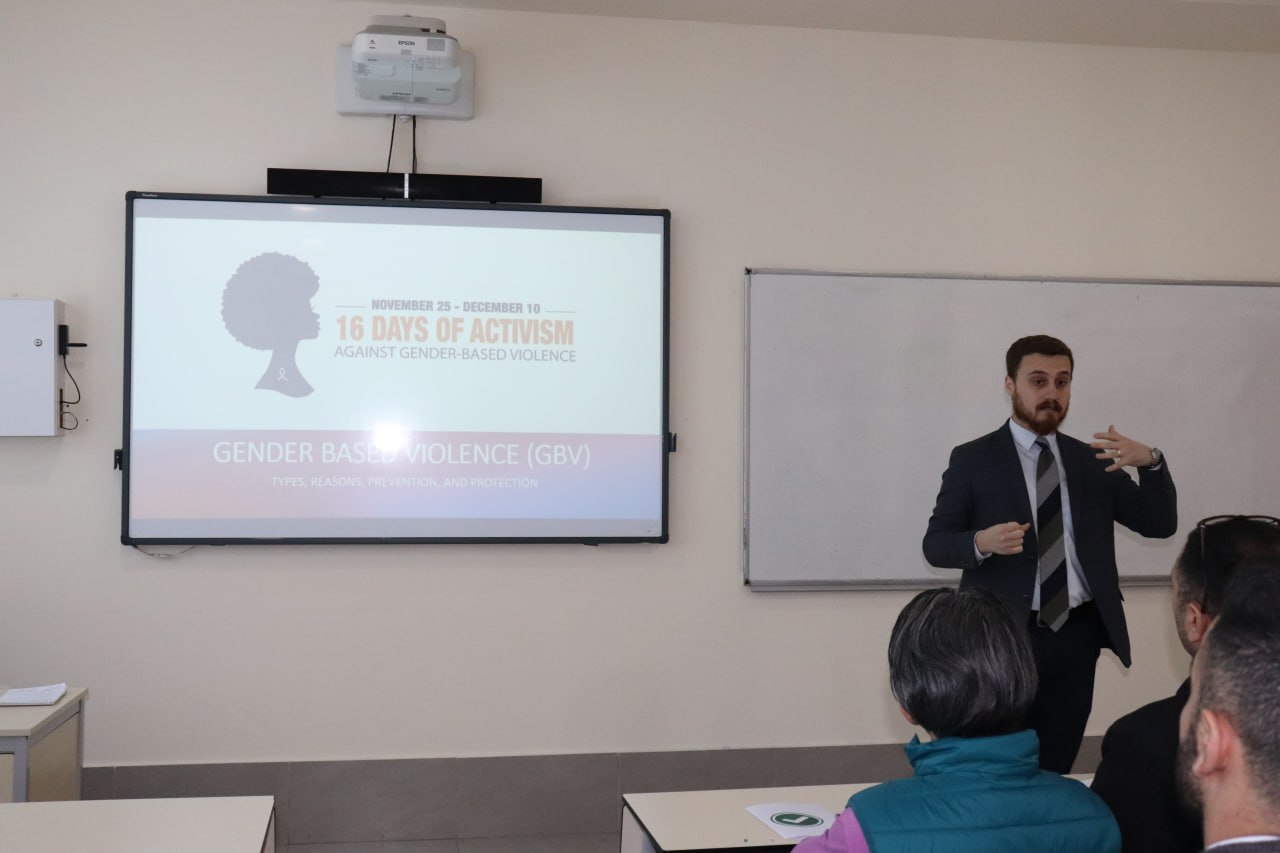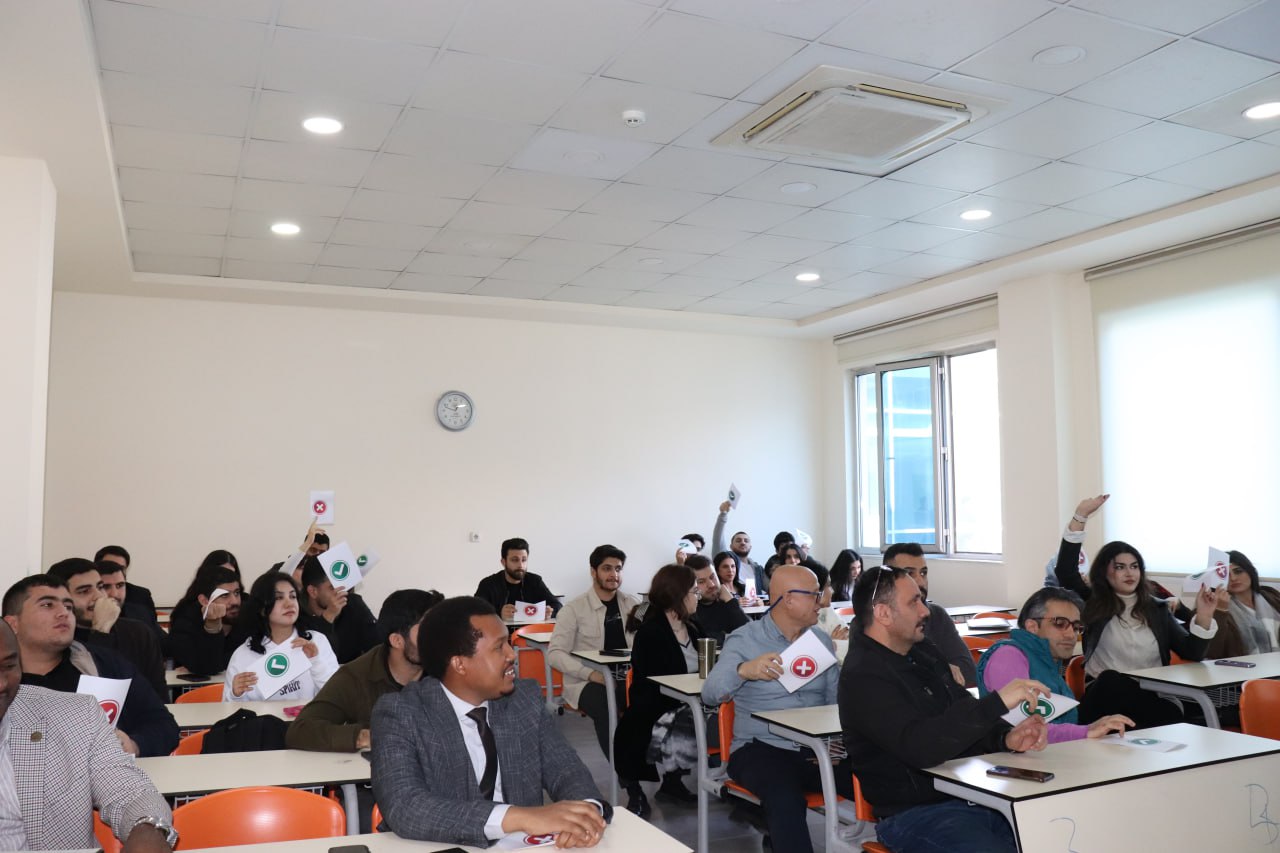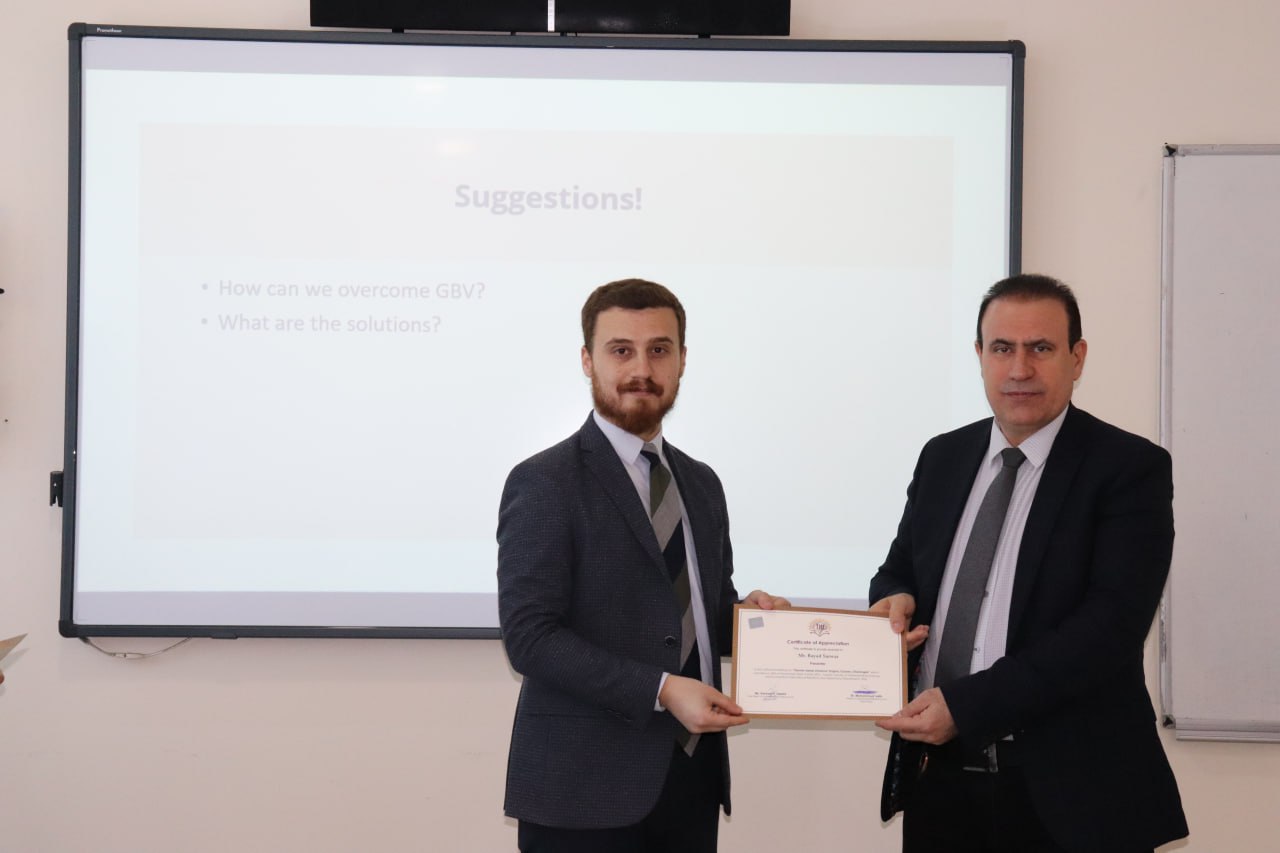IRD Department Organizes National Workshop on Gender-Based Violence
On November 30th, 2023, the International Relations and Diplomacy Department, Faculty of Administrative Sciences and Economics at Tishk International University (TIU) organized a National Workshop titled, Gender-Based Violence: Origins, Causes and Challenges. The workshop began with a welcome address by the moderator, Mr. Dana Sajadi, who stated the purpose of the workshop and introduced the two distinguished speakers, Prof. Dr. Ahmet Arabaci and Mr. Bayad Sarwar Abdullah.
The first speaker, Prof. Dr. Ahmet Arabaci took the participants through the meaning, historical trajectory, theories, and global perspectives on gender-based violence. He defined gender-based violence as a manifestation of historically unequal power relations between men and women. One of the most extreme forms of gender-based violence is the gender-related killing of women and girls. Gender-based violence is not a private matter, but a human rights violation that generates state responsibility, as vulnerability to gender-based violence is understood as a condition created by the absence or denial of rights.
Gender-based violence affects women everywhere, thus the need for action. Furthermore, gender-based violence and violence against women are two terms that are often used interchangeably, as most violence against women is inflicted by men for gender-based reasons, and gender-based violence affects women disproportionately. The UN Declaration on the Elimination of Violence against Women defines violence against women as any act of gender-based violence that results in, or is likely to result in, physical, sexual or psychological harm or suffering to women, including threats of such acts, coercion or arbitrary deprivation of liberty, whether occurring in public or in private life.
He identified the types of gender-based violence as physical, socio-economic, psychological and violence against women based on cultural practices. He traced the origin of gender-based violence to psychological, sociological theories, and lack of legal action. Gender-based violence is a global phenomenon, as in 2019, at least 243 million women and girls aged 15–49 across the world were victims of GBV. Similarly, more than one in three women (35%) globally report having experienced physical and/or sexual intimate partner violence or non-partner sexual violence in their lifetime.
The second speaker, Mr. Bayad Sarwar Abdullah engaged the participants in a practical session using the dialectic or question-and-answer method, where questions on gender-based violence were asked and answered. He also shed light on some of the factors responsible for gender-based violence, while calling for enactment of laws to protect victims of gender-based violence.
The two speakers gave the following recommendations:
-
Society should not tolerate any form of violent behavior or tendency, and any tradition or norm that legitimizes or approves violence or degradation of women.
-
The state should strengthen legal processes and punish perpetrators timely and effectively.
-
The society should be educated from kindergarten to the university level on the need to accord respect for fellow human beings.
-
The state should provide and sustain shelters for victims of gender-based violence.
-
Provision of health, mental health, and rehabilitation services for the victims.
-
Provision of financial compensation for the victims.
To finalize the event, certificates of appreciation were given to the speakers by the Head of IRD Department, Dr. Mohammad Salih Mustafa. On behalf of the Department of International Relations, we would like to thank the speakers for their contributions to this event, and hope to benefit more from their extensive knowledge.


